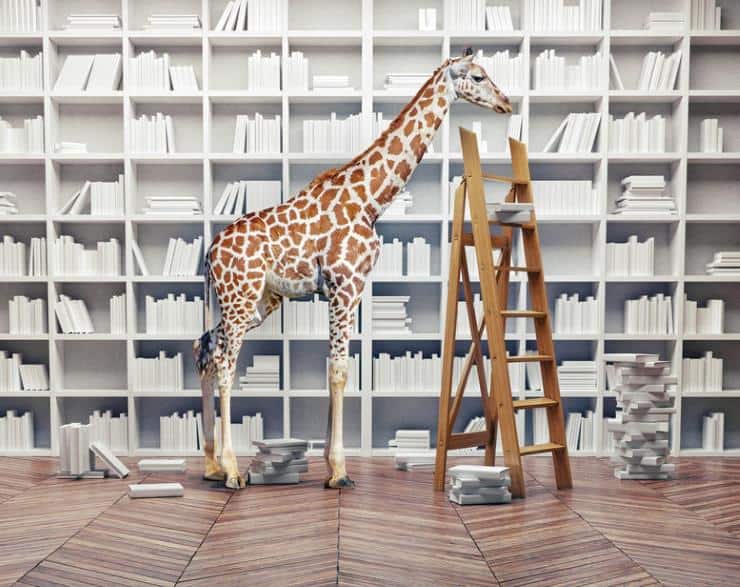Evolution has an odd way of appearing to be a perfect process, and with good reason. Many things in the natural world fit like a glove on a hand. Terms like ”natural selection” and “survival of the fittest” imply evolution is a goal-oriented process, with the goal being a perfect adaptation to the environment. But is it?
Dinosaurs didn’t evolve to be even bigger. Instead, they went extinct. That would not be possible if evolution were simply a staircase to perfection. Though cats, big and small, are among the most apt predators on Earth, they launch successful hunts in less than half of their tries.
So, let’s try to find a reason evolution isn’t perfect. A reason, for example, we don’t evolve resistance to all diseases. Even more importantly, why don’t giraffes evolve even longer necks?

Evolution is not supposed to be perfect
In reality, evolution is a complicated process, as is everything in nature. There are many reasons organisms don’t evolve into perfection, but most can be summarized in one statement: evolution is not supposed to be perfect.
Here are some contributing factors:
- Traits have both benefits and costs. To improve one thing, you are likely to neglect another. For example, a snail would be better protected if their shell were as thick as possible. However, a thicker shell also weighs more and is a burden when moving around. Even more so, the amount of calcium that is required to grow the shell is ridiculously high. To state simply, one cannot have it all. A giraffe with a longer neck might reach more leaves, but at the same time, she would need more muscle to support it and a bigger heart to pump blood through it. Besides, how much of a benefit is the even longer neck? If the giraffe can already reach as many leaves as she can eat, why bother to reach even higher?
- Evolution does not happen in isolation. Survival is not a common goal toward which all living beings jointly strive while supporting each other in the endeavor. No, in nature, the survival of one organism more often than not comes at the expense of some other organism. And the tricky part is that the organisms on which one’s survival depends evolve as well. I mentioned that cats launch successful hunts in less than half of their tries. Why don’t they improve over time? Well, they do, but so do mice, who evolve better abilities to detect and avoid cats. Similarly, we can’t evolve absolute resistance to viruses once and for all, because viruses evolve faster than we do — and even without further evolution, there are already too many of them for a universal defense to work on all of them.
- The environment is ever-changing. Even when evolution steers some species directly toward perfection, all the effort can be wiped away when something changes. It makes sense that a plant growing on a beach evolves resistance to salt. The problem is that evolving such a trait requires millions of years — a time after which the beach might no longer exist at all. We, humans, have changed our environment beyond recognition in a mere century. It might be a good thing for your heart to race from stress if you see a lion approaching, but to what extent it is helpful when your boss enters the room? As another example, trees, due to human activity, are getting shorter. For all we know, if trees get shorter, it might be harder for future giraffes with longer necks to reach their leaves. But who knows.
- Evolution happens to existing traits. Evolution happens to what’s already here. It does not have foresight. New traits don’t appear spontaneously; they are always a modification of an existing trait. Wouldn’t a rabbit benefit from having eight eyes, as spiders do? Yes, but a third eye cannot just appear by itself, because the development of an eye is a more complex process than, say, the growth of another petal on a lilac flower. Eyes depend on other structures that cannot be easily modified, such as brain parts that process visual information, nerves that connect them, and openings in the skull for the eye to peep through.
So, the reason evolution isn’t perfect is a combination of the factors above. Why don’t giraffes evolve even longer necks? There is no single answer to the question. But mostly, it’s because they don’t need to and because doing so would cost them too much.